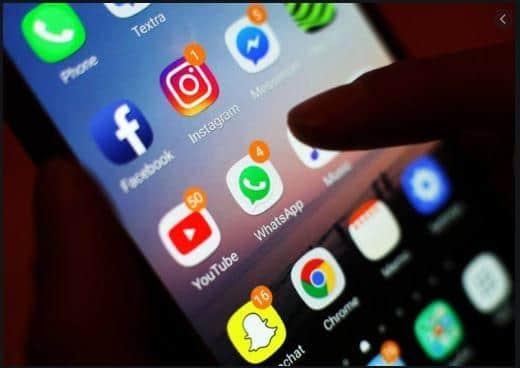Government hope to launch new contact tracing app nationwide as NHS urges public to download
and live on Freeview channel 276
NHS bosses have urged the public to download the new contact tracing app to help to ease lockdown measures and save lives.
The smartphone app began testing on the Isle of Wight on Monday as a new part of the Government's test, track and trace strategy and will be central to its efforts in slowing the spread of coronavirus.
Advertisement
Hide AdAdvertisement
Hide AdDeveloped by NHSX, the health service's tech innovation arm, the app will use Bluetooth to anonymously monitor and log when app users come into contact with each other.


The Government hopes to begin a national rollout of the app following the trial.
Users will input into the app when they have symptoms linked to Covid-19, and if the virus is suspected, they can then choose to share the proximity logs from the last 28 days with the NHS.
If any of that data shows contact with others which could be considered as having a high risk of transmission, those users will be alerted and given further instructions, including potentially being asked to self-isolate or be tested, with further updates then issued as test results come in.
Advertisement
Hide AdAdvertisement
Hide AdProfessor Jonathan Van-Tam, deputy chief medical officer for England, said it was crucial large numbers of the population download the app as it could help with the easing of lockdown measures.
"We do have some uncertainties about how many people will download the app, and it will be important that a significant proportion of the population downloads the app for it to have the greatest chance of giving us additional oomph in the contact tracing space, which in turn will give us additional room for manoeuvre in terms of other social distancing easements that we can consider in the weeks and months to come," he said.
"It's highly unlikely that the Covid-19 virus is going to go away, very likely that we are going to have to live with this virus in our communities to a greater or lesser extent until we find long-term solutions such as effective vaccines.
"Therefore, testing and contact tracing is going to have to become part of our daily lives for the future."
Advertisement
Hide AdAdvertisement
Hide AdHe added that the Bluetooth technology and proximity tracking in the app could give scientists vital insight into how the virus works.
"With the app's Bluetooth technology, we will not only understand the proximity and the duration of proximity of individual contacts to a case, but we will be able to dissect that out according to the day of illness of the case," he said.
"Therefore we will be able to learn, for example, about whether 30 minutes' exposure at close quarters to a case on day one of their symptoms is equivalent to two hours' exposure on one-and-a-half days before their symptoms began, for example, or three days after their symptoms began when their virus load is starting to decline."
NHSX chief executive Matthew Gould urged the public to take part and confirmed a public push for people to download the app would accompany its full rollout.
Advertisement
Hide AdAdvertisement
Hide Ad"The level of impact of the app does depend on the level of uptake," he said.
"So we're going to mount a really serious campaign to make sure that people know that if they do want to carry on saving lives, protecting the NHS and get the country back on its feet then downloading the app is one way that they can do that.
"The app is exciting, but it's also not a silver bullet or a standalone solution.
"It is part of this wider strategy and it has to be seen as part of that strategy alongside the expansion of testing and human contact tracing that the Government is committed to."
Advertisement
Hide AdAdvertisement
Hide AdProfessor John Newton, director of health improvement for Public Health England, said that having the app as part of that strategy was a "powerful approach".
However, the use of a contact tracing app has raised questions about privacy and the potential for anonymous user data to be linked to individuals.
Mr Gould confirmed it collected no specific personal data from users, instead relying on the anonymous keys assigned to each app user which could not be linked back to them.
"The app is designed so you don't have to give it your personal details to use it - it does ask for the first half of your postcode but only that.
Advertisement
Hide AdAdvertisement
Hide Ad"You can use it without giving any other personal details at all - it doesn't know who you are, it doesn't know who you've been near, it doesn't know where you've been."
The National Cyber Security Centre (NCSC), which has helped with the app's development, said privacy-preserving gateways had been built into the system so that all app data would be kept separate from other NHS data and to prevent individuals from being identified.
As part of the current test on the Isle of Wight, Prof Newton confirmed that lockdown restrictions would not be eased.
"All the same safeguards apply, they should still be following all the social distancing advice," he said.
Advertisement
Hide AdAdvertisement
Hide Ad"Not everybody, even in the current situation, is able to stay at home and completely social distance - particularly people who are central workers. Those are the people who would benefit straight away.
"This is the first time at scale we have tried to integrate all these elements - the testing, the contact tracing, and the app - will all be played out together at a really substantial scale on the Isle of Wight."